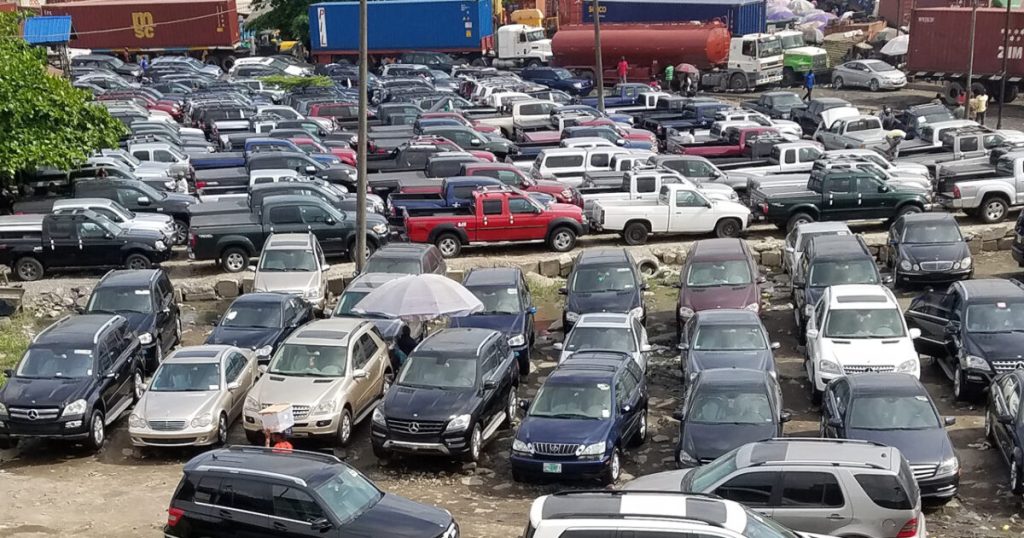The Nigerian automobile market is undergoing a significant transformation, driven by a confluence of economic factors that have made foreign-used cars, commonly known as “Tokunbo,” increasingly unaffordable for many Nigerians. Soaring living costs, coupled with high exchange rates and increased import tariffs, have pushed the prices of these vehicles to unprecedented levels, forcing potential buyers to reconsider their options. This shift in consumer behaviour has fueled a resurgence in the Nigerian-used car market, as more people turn to locally pre-owned vehicles as a more budget-friendly alternative. Online marketplaces, social media platforms, and traditional roadside car lots are witnessing a surge in listings by private owners seeking to capitalize on this growing demand. Conversely, car dealers specializing in imported vehicles are facing a challenging landscape, grappling with rising costs, dwindling demand, and the increasing difficulty of maintaining profitability in a market where their primary product has become largely inaccessible to the average Nigerian.
The devaluation of the naira against other currencies, particularly the US dollar, has played a crucial role in this evolving market dynamic. The cost of importing vehicles has skyrocketed, with prices often doubling or even tripling in the past year alone. The introduction of a new 4% Free On Board (FOB) levy, replacing the previous 1% Comprehensive Import Supervision Scheme (CISS) charge, has further compounded the issue. While the Nigerian Customs Service argues that the new levy is necessary to fund its modernization efforts and improve clearance procedures, it has undeniably contributed to the escalating prices of imported vehicles. This has created a unique situation where Nigerian car dealers, once accustomed to sourcing vehicles from neighboring countries like Benin Republic, are now finding themselves selling to buyers from these same countries, as the naira’s weakened value makes Nigerian-used cars significantly cheaper for foreign buyers.
The ripple effects of this market shift are being felt across Nigeria’s borders. Dealers in Sokoto report a surge in customers from Niger Republic, where the stronger currency allows them to purchase Nigerian-used vehicles at prices considerably lower than those in their own country. This cross-border trade is providing a much-needed boost to the local automobile market in Sokoto, even as Nigerian buyers struggle to cope with the inflated prices. The trend is not limited to Niger; buyers from Cameroon and other neighboring countries are also taking advantage of the favorable exchange rates, further demonstrating the extent to which the Nigerian automobile market has become intertwined with regional economic dynamics.
The Association of Motor Dealers of Nigeria (AMDN) is advocating for increased government support for locally assembled cars as a viable solution to the current challenges. They argue that promoting domestic automobile production would not only reduce reliance on expensive imports but also create jobs and ultimately stabilize vehicle prices. The AMDN is actively engaging with Nigerian car manufacturers to encourage the production of affordable vehicles tailored to the needs and budgets of average Nigerians. However, they express concern that current locally assembled models are often priced too high for the average consumer, urging manufacturers to prioritize affordability and practicality over luxury features. The association is also critical of the recent increase in import duties, asserting that the new 4% FOB levy, while replacing a 1% charge, still represents a net increase in costs, further exacerbating the affordability crisis.
The current economic climate has forced many Nigerians to make difficult decisions regarding car ownership. Some are reluctantly selling their vehicles to cope with rising living expenses and the increasing cost of fuel. Others are holding onto their cars, despite their aging condition and potential safety concerns, as replacing them has become financially unattainable. This situation underscores the severity of the economic pressures faced by ordinary Nigerians and highlights the knock-on effects of the inflated car market. The stories of individuals selling their cars to meet basic needs paint a stark picture of the financial struggles many are facing, emphasizing the broader economic context within which the automobile market operates.
The introduction of the 4% FOB levy has drawn mixed reactions from licensed Customs agents. Some argue that it will further restrict access to vehicles, making car ownership a luxury for the few. They express concern about the lack of exemptions for essential vehicles, such as commercial and special-purpose vehicles, and predict that the policy will exacerbate the affordability crisis. Others believe it is too early to assess the full impact of the levy, suggesting that while it may contribute to inflation, it is unlikely to halt imports completely. They anticipate that importers will pass on the increased costs to consumers, further contributing to the overall upward trend in vehicle prices. The varied perspectives reflect the uncertainty surrounding the long-term effects of the new levy and its potential impact on the already strained automobile market.


